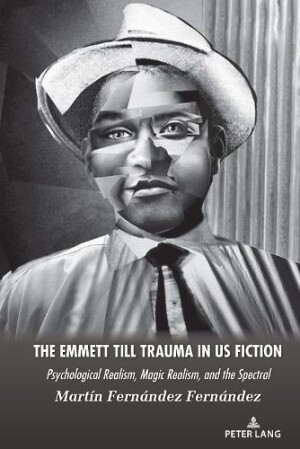This book analyzes the various ways of coming to terms with the Emmett Till case in US fiction. The 1955 lynching of the fourteen-year-old black youth in the Mississippi Delta raised a cultural trauma in the US collective imaginary that particularly pierced the African American community, later resulting in a recurrent motif that this monograph conceptualizes as the Emmett Till trauma. This motif has historically permeated the whole spectrum of US society, springing up in manifold ways and artistic manifestations, but why does it continue to reverberate with such prominence nowadays? And which strategies have the different communities been adopting to cope with it over the years? This book seeks in literature the answers to these central questions, as it analyzes the ways in which several social groups come to terms with the Till trauma, focusing on the three major novels inspired by the tragic incident: Bebe Moore Campbell’s Your Blues Ain’t Like Mine (1992), Lewis Nordan’s Wolf Whistle (1993), and Bernice L. McFadden’s Gathering of Waters (2012). The critical analysis of these three novels is imbued with a theoretical framework mainly based on trauma theory but also influenced by spectrality studies and black studies. Such a theoretical framework allows exploration of the hidden intricacies of the Till case and its traumatic impact on the broader US society, with special emphasis on its aftereffects within the African American community, in the first single-authored monograph on the infamous lynching in literature.
"Carefully theorized and persuasively argued, this study is the most comprehensive account we have of the haunting presence of Emmett Till in the American literary imagination. Attuned to hidden intricacies, Martín Fernández Fernández makes a convincing case that fiction provides us with the expansive space we need to work through historical trauma, enabling us to mourn properly across generations while at the same time exploring opportunities for progress and healing. Anyone interested in this lynching, and the vast literary response it has inspired, would do well to give this study the close attention it deserves."
—Chris Metress, Professor at Samford University; Author of The Lynching of Emmett Till: A Documentary Narrative
"This book successfully links the events of the Emmett Till case to recent historical episodes and the Black Lives Matter movement triggered by them. It is a thoroughly documented study that manages to present in a straightforward and accessible manner the historical and mythical significance of a case that still today haunts the US collective memory. The overwhelming evidence, the soundness of the argumentation, and the clarity and accessibility of the writing make of this monograph a valuable addition to our understanding of the African American experience, as well as the complex texture of the US as a nation."
—Manuel Broncano, Professor of American Literature, Texas A&M International University
"Martín Fernández Fernández locates the forever wound of black child murder in the crevices of America’s racial fault lines in his study The Emmett Till Trauma in US Fiction. More than just a recounting of the gruesome killing of fourteen-year-old Emmett Till, Fernández Fernández’s thoughtful study traces the ways Till’s murder has been memorialized in speculative fiction. Mythology, magical realism, and creative license provide ready avenues for the explorations of familial retribution, spiritual redemption, and communal healing in the bloodlines of both impacted families in the Till saga."
—Carol E. Henderson, Vice Provost for Diversity and Inclusion, Chief Diversity Officer, Emory University; Professor Emerita, English, Africana Studies, University of Delaware

















